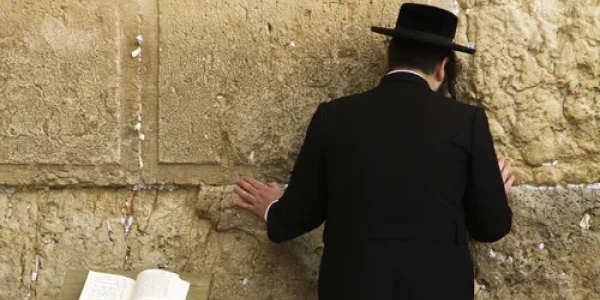Jews Continue Seeking Dialogue With Church
Not All in Accord With Adverse Reactions to Good Friday Prayer
26/02/2008 | Na stronie od 26/02/2008

By Jesús Colina
ROME, FEB. 26, 2008 (Zenit.org).- Jewish representatives have shown their willingness to continue dialogue with the Catholic Church, going beyond interpretations sparked by the new Good Friday prayer to be used by those communities that celebrate the liturgy according to the 1962 missal.
The messages, some of them addressed directly to the Holy See, have arisen after strong criticism of the text of this prayer, which asks that the children of the Chosen People, as well as the rest of humanity, can all come to recognize Jesus Christ and his Church.
The text replaces another prayer for the Jews, offered before the Second Vatican Council, which was perceived as offensive in some of its terms, in part due to the difficult history of relations between Christians and Jews.
Cardinal Walter Kasper, president of the Pontifical Commission for Religious Relations With the Jews, speaking on Vatican Radio on Feb. 7, clarified that this prayer -- prayed only by very small groups of Catholics, since the rest of the Church will continue with the prayer introduced by Pope Paul VI -- only professes the Christian faith, and does not seek proselytism of conversion.
"In the past, frequently this language was one of scorn, as Jules Isaac, a famous Jew, has said. Now there occurs a respect in diversity," the cardinal said.
Expressing identity
Among the reactions, an article published Feb. 23 in the German newspaper Die Tagespost is noteworthy. The article, written by Jacob Neusner, professor of History and Theology of Judaism in Bard College, supports the explanation given by the cardinal, explaining that the prayer does nothing more than express Christian identity.
"Israel prays for the gentiles, so the other monotheists -- the Catholic church included -- have the right to do the same, and no one should feel offended. Any other policy toward the gentiles would deny gentiles access to the one God whom Israel knows in the Torah," wrote the professor, who has taught at institutions including Columbia University, University of Wisconsin- Milwaukee, Brandeis University, Dartmouth College, Brown University and the University of South Florida.
"And the Catholic prayer expresses the same generous spirit that characterizes Judaism at worship. God's kingdom opens its gates to all humanity and when at worship the Israelites ask for the speedy advent of God 's kingdom, they express the same liberality of spirit that characterizes the Pope's text for the prayer for the Jews -- better 'holy Israel' -- on Good Friday," the Jewish professor explained.
"Both 'It is our duty' and 'Let us also pray for the Jews' realize the logic of monotheism and its eschatological hope," Neusner concluded.
Other representatives of important Jewish organizations have sent messages to the Pontifical Council for Promoting Christian Unity, which oversees the Commission for Religious Relations With the Jews. The messages seek to advance in the dialogue that began with the Second Vatican Council.
A letter from the World Jewish Congress, for example, proposes to advance in the difficult path of dialogue to go deeper precisely in those aspects that mutually wound the believers of both religious, with frankness, respect and the necessary openness of spirit.
Unbroken covenant
Cardinal Kasper has explained in responses to consultations from Jewish organizations that the text of the prayer is inspired in St. Paul's Letter to the Romans, Chapter 11, in which it speaks also of God's unbroken covenant with the Jews.
The prayer, he affirmed, leaves everything in the hands of God, not in ours. It does not speak of missionary activity.
Beyond the debate sparked by the prayer, the vast majority of Catholic faithful in the world will continue praying the great intercessions of the Good Friday liturgy, according to the missal adopted in 1969, which came into effect in 1970 during the pontificate of Paul VI.
That prayer says: "Let us pray for God's ancient people, the Jews, the first to hear his word [.] that God will grant us grace to be faithful to his covenant to grow in the love of his name."